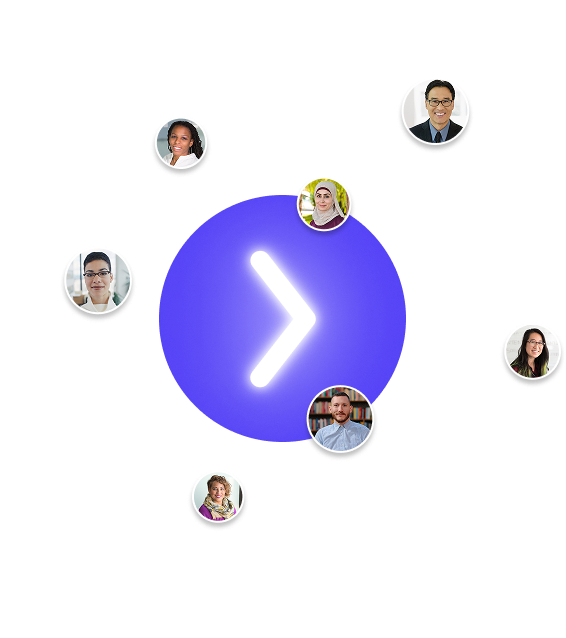
Subscribe to our Blog
We're committed to your privacy. SayOne uses the information you provide to us to contact you about our relevant content, products, and services. check out our privacy policy.

Jomin Johnson March 26, 20249 min read

Generating table of contents...
Hybrid apps mix web and native app features. Built with web techs like JavaScript, HTML, and CSS, they run in a native shell, letting them use device features through plugins. This makes them work across different platforms with one codebase, simplifying development and maintenance. They're cost-effective, scalable, and can even work offline. However, there might be some trade-offs in performance and user experience due to their universal design. Popular among many businesses, they offer a practical route to develop apps for a broad audience with reduced time and costs.
Hybrid apps combine web technologies with native app functionality. Here's a clear look into their operation: They are built using JavaScript, CSS, and HTML. Developers use these languages to create the app's functionality, design, and structure, similar to website development. The difference is that this code will run within a mobile app, providing a consistent user experience across various devices.
Hybrid apps are essentially web apps enclosed in a native container. This container allows the app to access mobile device features that are not available to standard web apps, enabling it to operate similarly to a native app.

Frameworks like Ionic or React Native are crucial in hybrid app development. They provide the tools necessary for integrating web technologies into mobile environments. These frameworks simplify development by offering pre-made components and extensions, making creating apps that perform well on mobile devices easier.
Plugins are necessary for a hybrid app to use the device's camera, GPS, or other hardware. These pieces of code enable web technology-based apps to access and utilize mobile device hardware. Plugins are vital for enriching the app's functionality, making the user experience closer to that of native apps.
Hybrid app development, while cost-effective and quicker for reaching multiple platforms, brings its own set of technical hurdles. Here's a closer examination:
React Native allows for the development of truly native apps, not just web apps, in a native wrapper. However, its limitation lies in handling custom models and interfaces that demand high dynamism and complexity.
Best For: Developers looking to create apps with a native feel using JavaScript.
Ideal Applications: Suitable for applications that require a native look and feel without the complexity of full native development. It's not ideal for highly dynamic, complex designs.
Read more on the Conversion of Native Android and iOS apps to React Native – How to do it
Ionic shines with its library of mobile-optimized HTML, CSS, and JavaScript components, making it a go-to for apps requiring responsive, fluid designs. However, its performance can be hampered by an over-reliance on plugins.
Best For: Web developers stepping into mobile app development with a single codebase for multiple platforms.
Ideal Applications: Perfect for creating visually appealing applications with a focus on front-end user experience. Heavily relies on native plugins, which can be a bottleneck for specific functionalities.
Xamarin facilitates the development of apps with native interfaces and allows the sharing of business logic across platforms. Its limitation is its performance compared to pure native apps and the lack of hot reloading.
Best For: Developers in the Microsoft ecosystem looking to leverage C# across mobile platforms.
Ideal Applications: Best suited for enterprise applications requiring a native look and feel with cross-platform compatibility.
Thanks to the hot reloading feature, Flutter is recognized for its fast development cycles.
Best For: Developers seeking to create high-fidelity apps with rich UI across mobile, web, and desktop from a single codebase.
Ideal Applications: Ideal for MVPs (Minimum Viable Products) to quickly demonstrate a concept across platforms. Flutter's own programming language, Dart, facilitates smooth and easy cross-platform development.
Leveraging Lua, a lightweight scripting language, Solar 2D simplifies the development process. It allows for quick prototyping and deployment across multiple platforms with a single codebase. Despite its focus on simplicity, it offers powerful performance for 2D graphics and a straightforward path from concept to market.
Best For: Developers aiming for rapid game development and lightweight applications.
Ideal Applications: Highly suited for 2D mobile games and educational apps that benefit from Solar 2D's fast performance and ease of use.
JQuery Mobile is an HTML5-based user interface system designed to create responsive websites and apps that are accessible on all smartphones, tablets, and desktop devices. While powerful, it has limitations in performance and user experience compared to native applications.
Best For: Web developers seeking to extend their applications across mobile platforms with minimal changes.
Ideal Applications: Best for creating web applications that need to be accessible on a wide variety of smartphones and tablets, ensuring compatibility and responsiveness.
Mobile Angular UI offers mobile components that Bootstrap lacks, providing a seamless bridge between AngularJS web applications and mobile-first design. It combines the declarative programming style of AngularJS with the mobile components of Bootstrap, making it a potent tool for web developers venturing into mobile app development.
Best For: Developers looking for a mobile framework that integrates with AngularJS and Bootstrap for building HTML5 applications.
Ideal Applications: Ideal for creating interactive, rich web applications and progressive web apps (PWAs) with a strong focus on mobile experiences.
Onsen UI is remarkable for its wide array of ready-to-use components that bring a native appearance and feel to hybrid apps. It's framework-agnostic, meaning it can be used with virtually any JavaScript framework, offering flexibility in the development approach.
Best For: Developers looking for a versatile and easy-to-use framework that integrates well with AngularJS, Angular, React, and Vue.js.
Ideal Applications: Suitable for developing HTML5 hybrid mobile apps that prioritize a native look and feel across all platforms.

The rollout of 5G is pushing the envelope for app functionalities, enabling richer features and smoother experiences. Apps are now being optimized for foldable devices, tapping into novel form factors and expanding screen real estate.
AI helps in crafting apps that adapt to user habits and preferences. By analyzing user data, AI enables apps to suggest content or actions that are more likely to resonate with individual users, making each interaction more relevant and engaging.
Thanks to advancements in natural language understanding, apps now offer voice command features, making them more accessible and easier to use. Users can perform searches, control app features, and interact with the app using just their voice, offering a hands-free experience that many find convenient.
Popular frameworks like React Native, Flutter, Xamarin, and others are leading the charge, enabling developers to craft apps that rival native ones in performance and user experience. These platforms are celebrated for their ease of use and ability to deliver apps that feel at home on any device.
Ready to get your hybrid app off the ground? SayOne Technologies is your go-to. Why us? It's simple. We've got a history of nailing hybrid app projects by sticking to what works: clear communication, cutting-edge skills, and a keen eye on what your business needs. Our team doesn't just build apps; we craft the tools you need to push your business forward. And we do it by keeping things clear and straightforward, without any buzzwords or fluff.
Let's turn your idea into a product that stands out. Click over to SayOne Technologies and let's chat about your project.

We're committed to your privacy. SayOne uses the information you provide to us to contact you about our relevant content, products, and services. check out our privacy policy.

About Author
Head of AI-Retail @ SayOne Technologies|Project Manager | Product Owner - CSPO®| Lead Business Analyst

We collaborate with visionary leaders on projects that focus on quality